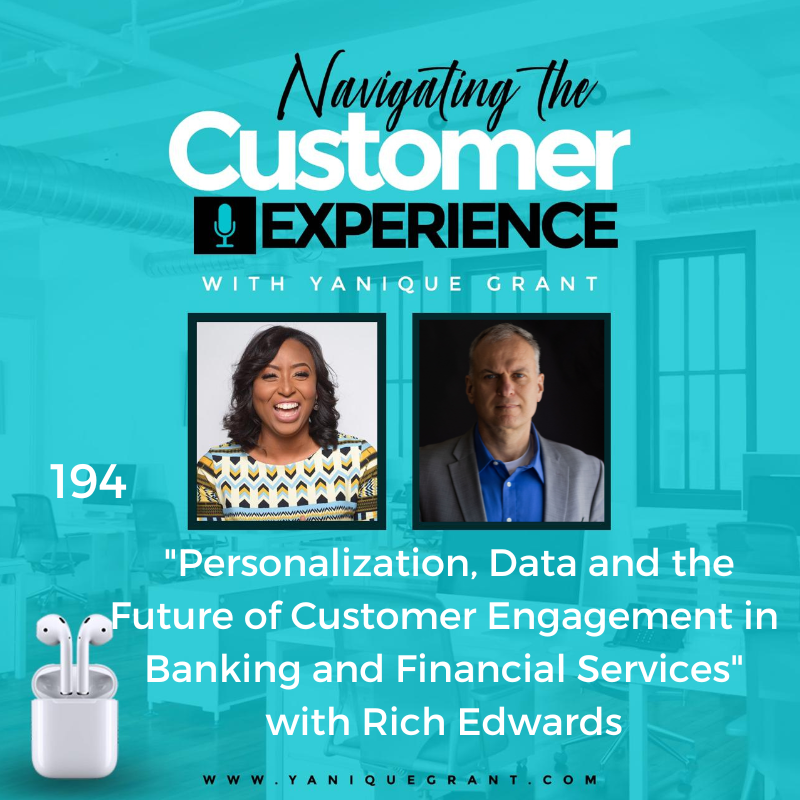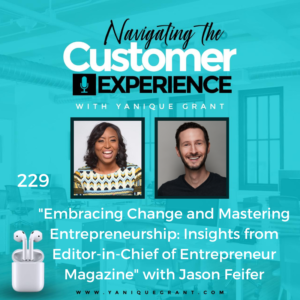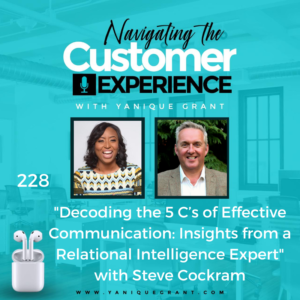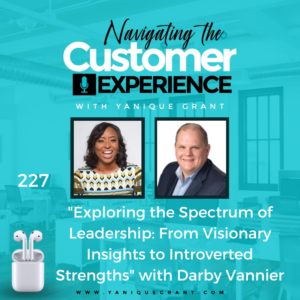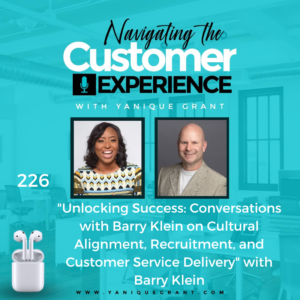Rich Edwards is the CEO of Mindspan Systems, helping community financial institutions transform themselves with data driven strategies and technologies. Community banks and credit unions have incredibly strong connections with their local customers when they’re in the branch, Rich’s expertise is crafting customer experiences to strengthen these relationships outside the branches walls.
After serving as a captain in the US Army, Rich went on to IBM spending over 20 years working with financial institutions on Wall Street and across the world. As the Product Management Lead overseeing the launch of the IBM Watson Developer Cloud, he helped financial service firms leverage market leading analytics, AI, and machine learning approaches, which is so relevant in this time that we’re operating in.
Questions
• In your own words, could you tell us a little bit about their journey, how did you get to where you are today?
• And since you’re an expert in the finance sector, could you give us maybe two to three, I would say maybe points or influences that organisations would be looking into in terms of ensuring that they are listening to their customers, they are adding value to their customers experiences.
• If you could share with our listeners maybe one piece of advice that you’d give them, we’re basically halfway through the year. But let’s say you were to give them one piece of advice where data is concerned in their businesses, what would that piece of advice be to kind of propel them in the direction of what you believe is the best way to go?
• Could you share with us what’s the one online resource, tool, website or app that you absolutely can’t live without in your business?
• What’s the one thing that’s going on in your life right now that you’re really excited about? Either something you’re working on to develop yourself or your people.
• Where can listeners find you online?
Highlights
Rich’s Journey
Me: We always like to give our guests an opportunity to share a little bit about their journey. I know we read your bio, and it kind of gives us a summary of who you are, but in your own words, could you tell us how did you get to where you are today?
Rich shared that it’s a rather unlikely past. Like you said, he started off his career in military and this was in the 90s, so it was a completely different experience than it is today. And did a little short stint working in manufacturing, in communications, in the fibre optic cable industry. And then ended up at IBM and he was working in the software business in IBM and spent the 10-11 years on the enterprise side and worked an awful lot with large banks, financial institutions, the population side like Social Security Administration, several national banks, federal banks, exchanges, things like that, that had like hundreds of millions of entities to keep track of.
And around the end of 2013, he got approached to join a new business unit in IBM that eventually became IBM Watson, it was the artificial intelligence business unit. And up until that point, it had largely been around some ongoing knowledge management solutions that were tied to healthcare. And this is kind of what you saw a lot of the public facing material with commercials and interviews like that, was around some of the work that was being done in cancer research.
And they were looking to build a new solution where their partners could build on top of the technology. So, instead of buying a ready-made solution from IBM, which was very much in the model of the traditional professional services solution or product, they wanted to give them a platform that they could build on top of.
And this was a somewhat novel idea in 2013, there were some things that Google was doing, particularly along the lines of voice recognition that was kind of tied to their mobile play with the Android ecosystem, but nobody was really doing say natural language processing as a service, certainly not as a commercial offering at that point. And so, that’s kind of what they built out, that’s what they did and is very much at the cutting edge of what was being done at the time.
And it was a really, really interesting time to be involved in that. And once they kind of got through the initial offering part, which was really what his job there was, was to figure out how to make all the cogs work inside an organisation like IBM to bring a new product to market. It became about the customers and the customer facing side of it, and particularly beginning to explore all of the use cases that were out there and how they could apply what was becoming a much more accessible technology to a lot of places that really didn’t have access to it before and certainly didn’t have access to a lot of the technology that was sitting inside IBM and IBM Research.
And him having had this background in financial services and banking, he kind of became like the banking guy, right, it made all the trips to a lot of the large financial institutions and government entities and in the public facing side. And so, that was that was really, really exciting to kind of be part of that. He ended up doing that for almost four years, built out a couple of different teams, they had a developer evangelism team, which was basically helping their customers build on top of the technology and that was a somewhat novel approach, for at least this part of the business for IBM. And so, it was a lot of like doing brand new things. So, that was really interesting and really exciting.
And in 2018, he really thought there was a lot of potential around this and didn’t really see how he was going to be able to exploit that or take it any further within IBM in the direction they wanted me to go. And so, he ended up leaving, and he bought Mindspan Systems. And the reason he bought Mindspan Systems was they had a very long background in hard data skills, data analytics, data manipulation, data warehousing, all of the things around how do you take control of an organization or help an organization take control of their data and get the most out of it.
And he really saw that this is where the future was going to be for a lot of organizations to be able to get ahead, meaning the technology around artificial intelligence, the technology around things like natural language processing, and kind of what you see today, with large language models like ChatGPT, etc. That layer of it is quickly becoming commoditized, it’s not to say that it’s not exciting, that there’s not a lot there. But that’s not where all the value is going to be, the value isn’t going to be in the way in which you’re able to configure in the UI of the date of everything, it’s going to be in the data itself.
So, the individual companies that are able to control and harness and leverage their data in a way utilizing technologies like parts like with metals and other things that are available out there, that’s where the value is going to be. And so, it’s having those data skills and the data capabilities in house to leverage your own data, your first party data, that’s where he believes, we’re beginning to see an awful lot of evidence of this, that’s where a lot of the value is going to be for companies in how do they reach out to their customers.
Listening and Adding Value to Customer Experience
Me: So, that was really, really good, great insight on your journey and how you got to where you are today. I was really intrigued by you focusing on the fact that the data is what will drive how you have the conversations with your customers. And since you’re an expert in the finance sector, could you give us maybe two to three, I would say maybe points or influences that organizations would be looking into in terms of ensuring that they are listening to their customers, they are adding value to their customers experiences, like what are customers in that space looking for now?
Rich shared that he’ll give a couple of examples and talking about it from banking and financial services. But these trends are much broader than that, this isn’t like an industry specific or only limited to those types of companies.
There is a huge consumer preference for personalization, meaning people want to be treated like individuals, they want to be understood and valued by the companies and the brands that they do business with. When they begin to feel that, it’s almost like a herding cattle situation, and that they’re unable to get the service level that they believe they deserved or what they thought they were signing up for, that’s a good way to ruin customer satisfaction and ruin the value of a brand.
There certainly are aspects of where very highly leveraged, highly automated industrialized processes work. You look at like at Amazon for example, famously, there’s no phone number for Amazon. You have a problem, you are never going to get somebody on the phone to help you resolve that. And by and large, it seems like, at least in the US, people have agreed that that’s the deal that they have of customer service for the convenience and the price advantage of what they get.
Now, in return, they get very good products, they sell this as a service, product recommendation, next best offer like they’re very good at that, they are able to leverage the information they have about the individual consumers to continue to be relevant to them, they continue to be someone that they go, their go to. Well, that’s one example of that.
Now, he will say in the financial services space, particularly community banking, their business model looks a lot more like a retail organization than it does say, a Wall Street bank. And the reason for that is the long legacy is the local branch, the local experience of going in and working with a Teller or working with a local banker for your financial transaction, whether you’re getting a mortgage, or dealing with your day to day checking, or bill pay situation or a car loan, you have this place that you can go to and go in and meet them and the experience of that for community banks, a lot of these institutions are over 100 years old and they have very carefully honed that experience.
When you go into a bank or credit union like that, you’re dealing with someone who works for a local organization, they are all the way up through management your neighbours, they understand where you live, what’s going on in your community, what it’s like to be in that experience to deal with the situations that you ran, or the opportunities that you have. That’s why you see things like community financial institutions are way over indexed on business lines in commercial real estate, which is very much a local business, and participation in small business administration loans, because they’re tied into that local community.
They know things, they are much closer to their customers than large regional or national banks are. And they leverage that and that’s their experience, where that seems to fall down for them is when you leave the branch, when you’re not there in front of the Teller or not at the drive thru, and not at one of their ATMs, but you’re dealing through the web or through a partner or through their app, that level of personalized services begins to fall off, it begins to be not as sharp and crisp as it is in branch. And that’s where he believes there’s a major opportunity for companies like this to improve both the customer experience but also their differentiation, their ability to stay relevant compared to much larger, much more well financed institutions.
Me: It’s interesting you said that it falls off, the service is not the same, do you think it’s because it lacks a human component? So, that personal touch that you get when you’re in branch talking to a live human being is a completely different interaction if you’re dealing with an application, or you’re dealing with a website.
Rich agreed, absolutely. And part of this is up until even through the Great Recession, he’s trying to remember, he doesn’t have it off top his head, but even through about 2014-2015, a good chunk of community business was in person, it was foot traffic in the branch, it was certainly dropping off. But then you saw this big influx of investment dollars that went into financial technology or FinTech industry, and that started around 2018 and that slowly began to kind of erode their relevance, their position in the market. The two big ones there that come to mind are in the peer-to-peer payments segment, so Venmo and then later Cash App had this incredibly explosive growth where they just kind of stepped right in front of what would normally be a cash or transaction that might involve your bank into this completely separate thing that was mobile first, mobile only and began to see more and more relevance for companies like this to stand in place of at least a slice of what the services a traditional bank would provide.
And then COVID, and then everything fell over and it just accelerated everything nearby 5 to 7 years. So, they’re in that position now, where this incredible experience that they’re able to provide in person, they’ve lost that advantage, or at least from a percentage of time percentage of customers that they’re able to get in front of, and the core providers for community banks that do their core banking, how to think like ERP for banking.
For banks this size, there’s only a handful of providers. In fact, he thinks the top 3 have about an 80%/85% market penetration. So, it’s not quite a monopoly, but it’s all with gobbly. And they are notorious for being very slow to offer new offerings to them.
So, this need to say, well, we need to be able to translate this great in person experience that we have into our digital channels, they’re hampered by that, they’re not provided the tools there. And there’s plenty of tools out in the market for, but most of them are geared towards more an online retailer or a brick and mortars retail that has an online channel, it’s more geared towards a retail transaction, which is very different from banking.
Different enough that you’re either going to find a lot of these institutions, either just going without, and skipping it, or trying to contort themselves into a set of offerings and tools that really wasn’t built for them, and is suboptimal, and they spend a lot of time trying to make it work and it really isn’t. So, from a customer engagement standpoint, there really is a hole in the market for financial services particularly when it comes to that engagement level of customers, the customer facing their right.
Using Data to Propel Business
Me: If you could share with our listeners maybe one piece of advice that you’d give them, we’re basically halfway through the year. But let’s say you were to give them one piece of advice where data is concerned in their businesses, what would that piece of advice be to kind of propel them in the direction of what you believe is the best way to go?
Rich shared that technology is great, it has benefited society immensely. But there’s always a mistake to kind of engage with or buy or try out technology for technology’s sake. And as a marketer or as an entrepreneur or somebody who’s running a company, you always kind of have to take a first principles approach to it and think about, from a customer standpoint, what problem am I solving here? And how is technology going to help me do that better or do it in a more efficient manner? So, you always want to kind of put it through that lens, you need to be a little bit of a pragmatist when it comes to this.
We’re sitting here now at the end of the second quarter of 2023, massive proliferation of the use of ChatGPT and things like it in a lot of different use cases. And a lot of them when you kind of dig deep into the layer of it, they kind of look like a hammer looking for a nail, that is really neat, it does some cool things, but it’s not really in service of probably a persistent or an important problem, either for the company or for the customer.
And so, really being to layer that on there and use that as a lens for how do you evaluate this? How do I evaluate what I’m doing? That’s an important consideration.
On the data side, he will say, just in general, and it’s especially true for regulated industries, like financial services and like healthcare in particular, but the data that you have about your customers, about your market, about how your industry works, the bigger the data that is not held by anybody else. Understand that that’s becoming increasingly a valuable asset. That’s going to be something that even if you don’t have a clear use case today or clear path for how you can leverage data today, understand that that’s only going to get more and more valuable, first party data, the data that you have about your business and your customers only gets more valuable, as things like the commoditization of artificial intelligence, and other aspects of it get broader and broader.
Think of it this way, the market for writing a boring press release effectively the price for that has gone to zero. Doing anything that is generic or bland, or something that you can leverage in open-source database about or even the things that are available like ChatGPT.
If ChatGPT can answer the question or develop it for you, it is now a commodity, everybody has that, it doesn’t make you special, it will not help differentiate what you’re doing, or how you present it to your customers, you may have to do it because everyone else is and it becomes a cost of doing business but it’s not going to be a differentiator. But your data that you have when you can take something like that and layer on what you know, think of a really simple situation like, he can go to ChatGPT and can say, “Look, write me a Facebook headline for a display ad or women’s purses that are vegan leather in red with gold accents on it.” It can give you like 10 or 12 versions.
But your ability, say, as an ad agency to say like, yes, these 12 are options, but these 4 at the top are going to double your chance of conversions and reduce your costs of acquisitions by half, that’s where all the value is. Your ability of knowing how you’re going to leverage this and the impact that it’s going to have on your customers, that’s where you’re going to be able to get that advantage. And so, that whole idea of really understanding what you know and the level of which it’s codified in your data that you can look at it and hold on to it, that’s really going to be a point of differentiation and competitive advantage going forward.
Me: Awesome, that was an excellent example.
App, Website or Tool that Rich Absolutely Can’t Live Without in His Business
When asked about an online resource that he can’t live without in his business, Rich shared that really to do tracking and there’s a lot of options there. He uses Mac for work, and he uses a programme called Things, which does that. But for a long time, he was on paper and it’s not so much like having these long lists of to-do’s and it’s about personal productivity. It’s more the idea and this comes from there’s a book called Getting Things Done: The Art of Stress-Free Productivity by David Allen, which is very much like the Bible on personal productivity, it goes into a lot of things. But the value isn’t so much the forcing yourself to do things, it’s when something comes up, you have a bulletproof way in which you capture it, and you don’t have to think about it anymore. And it’s that ability of not having all these things floating around in your head, distracting you from what’s really important and what you need to focus on, that’s really the value in it.
So, that ability to not have to worry about particularly as an entrepreneur, the 20, 30, 40, 50 things that you’re eventually going to have to deal with. But put all of your focus and your energy on that one really important thing that you’re working on right now and know that you’re working on the most important thing. He doesn’t know that he could run his business without the ability to do that.
What Rich is Really Excited About Now!
When asked about something he’s really excited about, Rich shared that this tipping point in artificial intelligence, just based on his background, because he’s now been involved in it very much on the on the bleeding edge of it for 10 years to kind of really see it begin to tip over into the mainstream is pretty exciting.
And one, it’s obviously that to see the thing begin to pay off the way that it’s been promising for quite some time, but also the way in which it’s a lot more acceptable from a mainstream standpoint. The idea of incorporating machine learning or artificial intelligence into a business process is not as crazy idea as it was even 2 or 3 years ago, and everybody’s looking to kind of do it now, even if only from a competitive parody standpoint.
And he thinks the biggest thing there and this is kind of his angle and his company, their reason for being is really around giving parody to smaller businesses, particularly more agile businesses that are willing to step out and take a risk on something like this. It is the ability to really enhance small businesses, sometimes start-ups, sometimes established small businesses. And like he said, where they focus with community financial institutions, it’s the ability to kind of give them that competitiveness with what they’re for a long time, just the goliaths of their industry. And he thinks, particularly now in 2023, as we’re looking at a potential economic slowdown, it’s really the small business sector, and in particular job creation that comes out of it is the big leading indicator, and certainly, the determiner of how quickly an economy comes out of even a slowdown, let alone a full-blown recession.
So, the more that that’s there to kind of help that along to speed it to reduce a lot of the friction from a patient at that level at the small business level, the better off we’re going to be and the quicker we’re going to be able to return to a real growth setting, a growth posture of company.
Where Can We Find Rich Online
Website – www.mindspaninc.com
LinkedIn – Rich Edwards
Twitter – Rich Edwards
Please connect with us on Twitter @navigatingcx and also join our Private Facebook Community – Navigating the Customer Experience and listen to our FB Lives weekly with a new guest
Links
· Getting Things Done: The Art of Stress-Free Productivity by David Allen
The ABC’s of a Fantastic Customer Experience
Grab the Freebie on Our Website – TOP 10 Online Business Resources for Small Business Owners
Do you want to pivot your online customer experience and build loyalty – get a copy of “The ABC’s of a Fantastic Customer Experience.”
The ABC’s of a Fantastic Customer Experience provides 26 easy to follow steps and techniques that helps your business to achieve success and build brand loyalty.
This Guide to Limitless, Happy and Loyal Customers will help you to strengthen your service delivery, enhance your knowledge and appreciation of the customer experience and provide tips and practical strategies that you can start implementing immediately!
This book will develop your customer service skills and sharpen your attention to detail when serving others.
Master your customer experience and develop those knock your socks off techniques that will lead to lifetime customers. Your customers will only want to work with your business and it will be your brand differentiator. It will lead to recruiters to seek you out by providing practical examples on how to deliver a winning customer service experience!
The ABC’s of a Fantastic Customer Experience Webinar – New Date
Register Here


